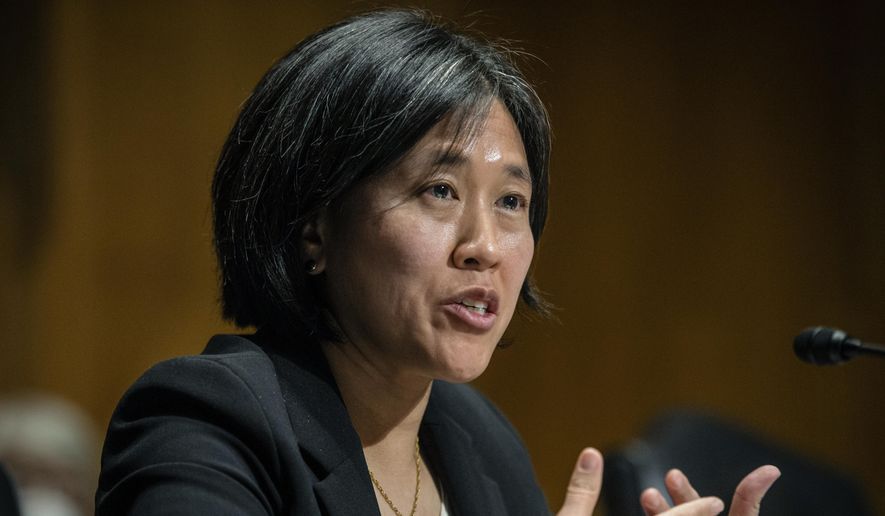The Biden administration on Wednesday threatened tariffs on goods from six countries that have imposed digital services taxes on tech companies such as Google and Facebook.
United States Trade Representative Katherine Tai announced the tariffs but immediately suspended the trade action for up to 180 days amid hopes that an international deal to address the digital service tax issue could be in the works.
The 25% tariffs would target nearly $2 billion in imports from Austria, India, Italy, Spain, Turkey and the U.K. in retaliation for their various digital service taxes.
The digital service tax, which hit tech companies that don’t have corporate offices in the tax-levying country but have users or customers there, has been at the center of fierce international debate for at least two years as nations attempt to adapt to the new reality of global digital commerce. The Trump administration fiercely fought foreign efforts to tax the mostly American new internet giants, including Facebook, Google and Amazon.
“The United States is focused on finding a multilateral solution to a range of key issues related to international taxation, including our concerns with digital services taxes,” said Ms. Tai. “The United States remains committed to reaching a consensus on international tax issues through the OECD and G20 processes.”
She said the move allows for the talks to proceed while “maintaining the option of imposing tariffs.”
The negotiations are set to resume Friday in London at a meeting of finance ministers from the G-7 advanced economies, including Treasury Secretary Janet Yellen. If they strike a deal, it would lay the groundwork for a broader agreement when the finance chiefs from the Group of 20 leading economies huddle in Venice in July.
Under current international tax rules, multinational companies usually only pay corporate taxes in the country where they are headquartered or where their production is based — not in countries where they have customers.
U.S. digital service exports total about $517 billion annually or more than half of U.S. service exports, according to the Internet Association, a trade group representing the major web-based companies.
The approval of the tariffs follows a yearlong trade investigation, known in Washington as a Section 301 investigation, that was launched by the Trump administration.
President Trump was widely criticized for his use of tariffs in advancing trade policies, including in dealings with China and the European Union.
Australia imposed a 10% digital service tax on non-resident tech companies, which is the highest rate among the six countries.
Turkey has a digital service tax rate of 7.5%, followed by Spain and Italy at 3% and the U.K. and India at 2%.
The Section 301 investigation included 10 countries but did not result in approved tariffs against Brazil, the Czech Republic, the European Union and Indonesia because those jurisdictions had not implemented their proposed digital service taxes.
• S.A. Miller can be reached at smiller@washingtontimes.com.




Please read our comment policy before commenting.